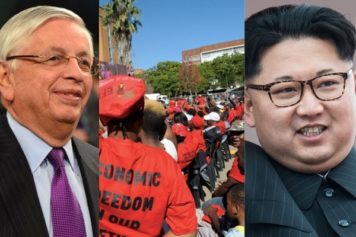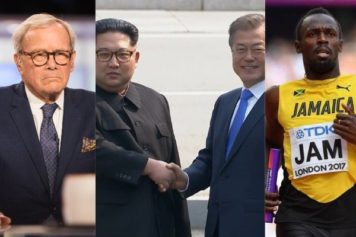North Korea’s young leader, Kim Jong Un, shocked the world today when North Korea successfully launched a long-range rocket that put a satellite into orbit, defying restrictions imposed by the U.S., China and the rest of the world and dramatically resetting the nature of North Korea’s relationship with its Pacific neighbors.
The North Koreans say the satellite, which is called Kwangmyongsong-3, is equipped with “survey and communications devices essential for the observation of the earth.”
This successful launching comes after the spectacular failure of a rocket launch in April made North Korea an international laughingstock. After four unsuccessful rocket launches, starting in 1998, this is the first time North Korea has tried it twice in the same year and the first time in the frigid winter. But the move was interpreted by experts as a strong statement by the young leader intended not only for the rest of the world but also for the citizens of North Korea, especially coming at a sensitive time for him domestically—he just fired many senior military officials and replaced them with his own people.
“I think this is very important to Kim Jong Un to build political legitimacy and bolster the spirits of his people,” said James Schoff, a North Korea specialist with the Carnegie Endowment for International Peace. “He is doing this despite the fact that he knows he is going to come into a lot of criticism in the region for it.”
But the move, considered a violation of United Nations Security Council regulations, clearly shows North Korea’s priorities. When it tried to launch the rocket in April, it killed a deal with the United States to provide thousands of tons of food aid to North Koreans.
This was pointed out by British Foreign Secretary William Hague, who said he deplored the fact that North Korea “has chosen to prioritize this launch over improving the livelihood of its people.”
While China, perhaps North Korea’s only real ally in the world, has previously been somewhat tepid in its criticisms of North Korea in the past, China’s reaction to the launch was surprisingly strong. It said earlier today that it “regrets” the launch. Hong Lei, China’s Foreign Ministry spokesman, said that North Korea’s right to a peaceful space program was “subject to limitations by relevant United Nations Security Council resolutions,” which the New York Times pointed out was tougher language than China has used on that subject in the past.
In fact, some observers interpreted the timing of the launch as a reaction by Kim Jong Un to a visit to North Korea from a Chinese delegation intent on trying to push him into abandoning the rocket launches.
Other nations affected by the launch were strong in their condemnations. The South Korean government called the launch confrontational and a “threat to the peace and stability of the Korean Peninsula and the world,” while Japan said it was “intolerable.”
According to the U.S. it was “a highly provocative act” that is “yet another example of North Korea’s pattern of irresponsible behavior.”
While North Korea clearly isn’t yet able to reach the West Coast of the U.S. with a long-range missile, Philip Yun, an adviser to former President Bill Clinton on North Korean issues, told CNN, “This is something that we have to worry about.”
But North Korea still has a lot work of to do “if they’re actually going to mount a nuclear device or a weapon on a rocket,” said Yun, who is executive director of the Ploughshares Fund, a U.S.-based foundation that seeks to stop the spread of nuclear weapons.
It should also be noted that Kim Jong Un scheduled the launch just six days before the one-year anniversary of the death of his father, Kim Jong Il.


